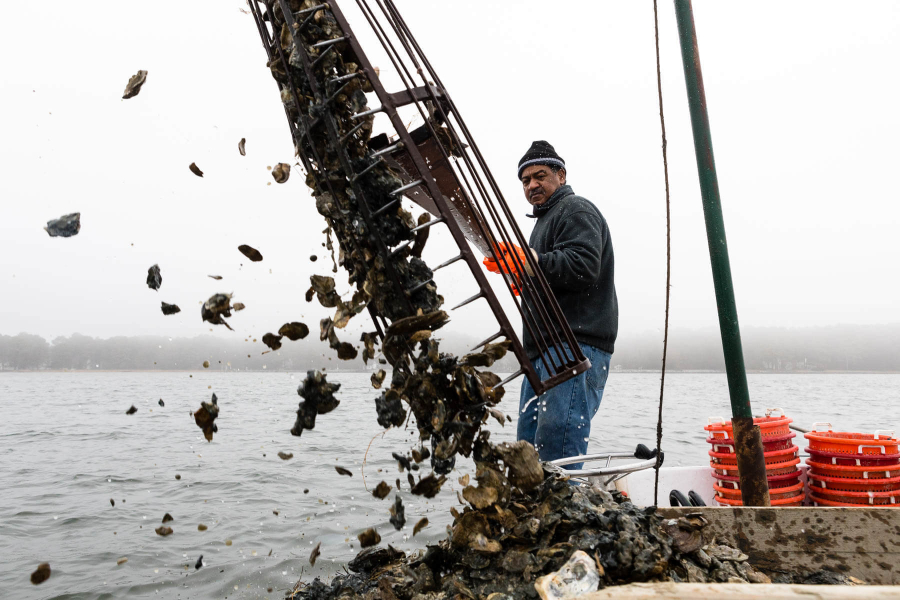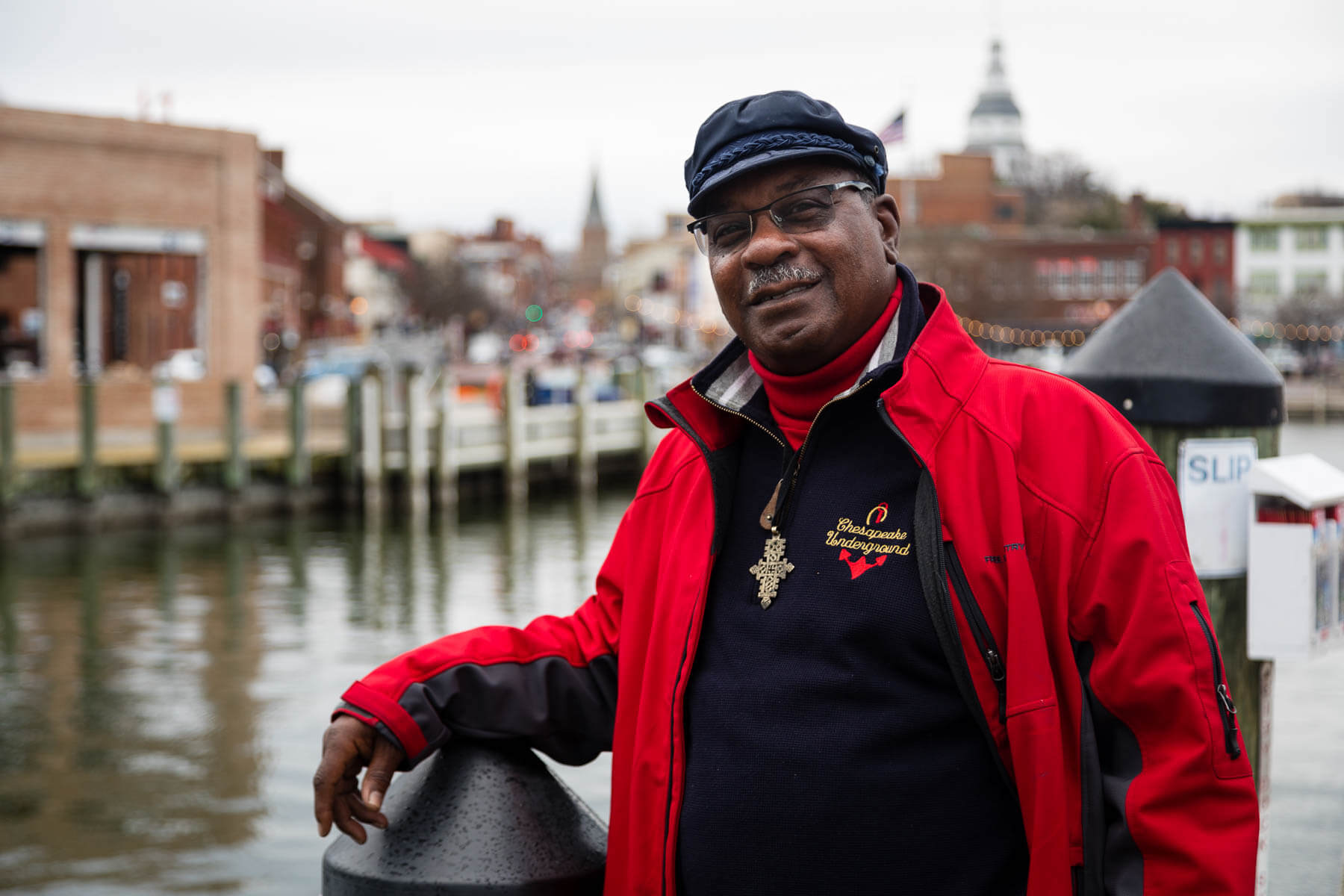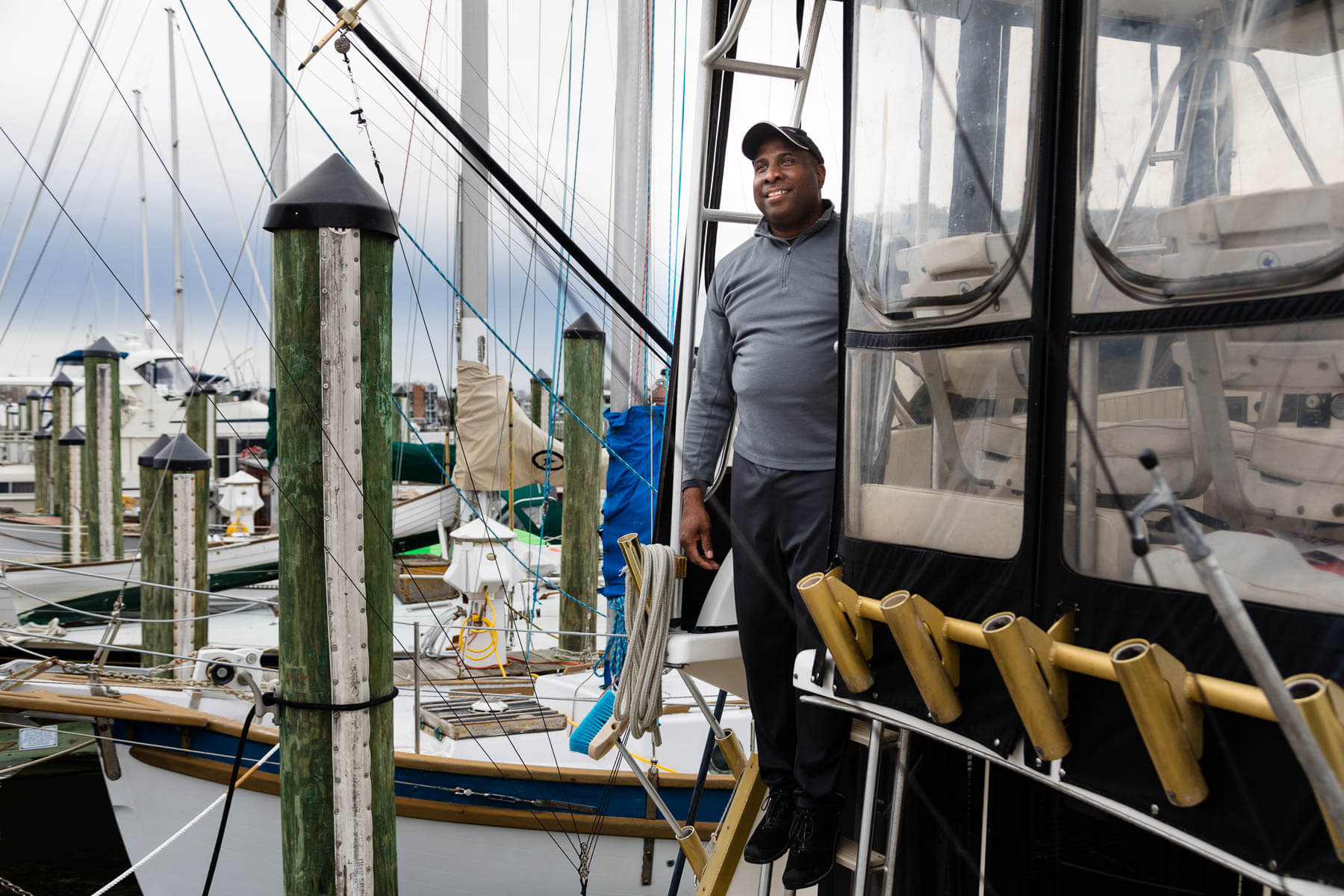Life on the Bay, through ebony eyes

Men of African descent have had a relationship with the waters of the Chesapeake Bay since the arrival of indentured servants in Jamestown, Virginia in 1619. Black watermen have enhanced maritime navigation and trade on the Chesapeake Bay during some of the most critical times in our nation’s history.
Some of the first Blacks to be legally classified as American citizens were sailors. Sixty-seven years before the Emancipation Proclamation, the federal government began issuing Seamen’s Protection Certificates, which defined those who possessed them as citizens.
Nicknamed “Black Jacks,” these men worked as equals alongside whites while on the water. Indeed, an 1836 law that attempted to restrict Black labor on the water was largely ignored by white captains and watermen who kept or employed Black sailors, despite the risk of heavy penalties. White boat owners that violated this law would have their boats seized and sold, half the profits going to the informer. Legalized and institutionalized, this law promoted a culture of segregation and economic oppression.
Legal or not, Blacks continued to work the water throughout our history as shipbuilders and crew, hauling freight, harvesting oysters and captaining subterfuge (creating strategies for slaves to flee secretly using boat passage). During the Civil War, the U.S. Navy was integrated, and nearly 18,000 men and 11 women have been identified by name as serving in the Navy during that time.
After the Civil War, Black labor continued to be an essential part of America’s south, but specifically the Chesapeake region. By 1860, the Chesapeake Bay was the main supplier of oysters in the United States. At the time, oystering was also one of the highest paying jobs for Black men.

Continuing the maritime tradition
For the past century, African-American watermen of the Chesapeake Bay have since continued to seek out available economic opportunities as commercial fishermen, oystermen and crabbers. Here in the twenty-first century, the legacy of Black watermen is kept alive through the modern Black waterman still working the Bay today.
One of those watermen is Captain Tyrone Meredith. A fifth generation waterman, Meredith is a jack of all trades on a vessel, having started as a mate on his father’s boat at the age of six.
“The mates on the boat does everything the captain doesn’t do,” said Meredith.
The captain of whom he speaks was his father, the venerable and larger than life Captain Eldridge Meredith of Kent Island, Maryland. Known as “the quintessential waterman,” Captain Eldridge Meredith was named the 101st Admiral of the Chesapeake Bay in 2017 by Governor Larry Hogan.
Meredith the younger continues his father’s legacy but adapts to be a different kind of waterman, facing a harsher Bay and lower catches. “I think the bay grasses disappeared, and the little crabs hide in the bay grass,” explained Meredith. “So, it’s no grass for the crabs to hide and grow. It’s almost as if they’re crawling in a dessert, allowing for larger fish to eat them up before they get big enough to catch.”
As catch decreased, so too did the number of Black watermen Meredith saw. “In 1970, around 100 Black watermen could be found on Kent Island alone. Now you have a handful, maybe about 12 actually left.”
It’s not only the watermen who left. “At one time, there were 18 shucking houses located on Kent Island—about 1,000 Black people were employed across these houses to shuck the oysters and clams,” said Meredith. “Most of the workers in these shucking houses were older, died off or moved away and their children never picked it up. As they got older, climate change became more apparent and the industry died down.”
On top of that, better access to higher education and more stable job opportunities in urban areas like Annapolis, Baltimore and Washington, D.C., played a significant role in the migration of African-Americans from the eastern shores of Maryland to urban areas more inland.

Finding new ways to share the Bay
Further inland from the Black watermen hub of Kent Island, Marcus Wooley learned to love the water as a pleasure boater in the Washington, D.C., metropolitan area. Though he could maneuver a boat before he had a driver’s license, he thought he was alone insofar as wanting to make a living off the water.
“I saw a couple Black boat owners—pleasure boat owners—but not maintaining a living as an entrepreneur that worked five to seven days a week on the water. It was not until I became older that I understood there were black watermen on the Chesapeake Bay, a place where I fished all my life.”
An IT professional by trade, Wooley began transitioning out of his day job to start a business as an independent maritime consultant in the late 1990s. “I feel like I’ve just gravitated to the Bay and just love the water,” said Wooley.
Now, he’s working to share that love with others. During the summer of 2017, he joined Airbnb, advertising his boat as a two-bedroom, one-bathroom floating condo. He is also considering other avenues of enterprise on the water, such as running tours. “The industry has changed,” shrugged Wooley, who sees himself as a twenty-first century waterman, “just as much as the environment has changed.”
Keeping up with that change is Vince Leggett, founder of the Blacks of the Chesapeake Foundation, who works to capture the stories of African-Americans in the Chesapeake region. Leggett is a historian, writer and cultural geographer of African-American legacy and heritage of the Chesapeake Bay, and a 2003 awardee of the Admiral of the Chesapeake Bay.
“What I have found is, from an African-American perspective, is that exposure is a big part of it,” he said. “As we look for ways to diversify the industry, I think for men like Captain Meredith and Captain Wooley to stay on the Bay, they need to find different ways to make it work. How they use their 30 and 40 years and multiple generations of insights of tides and waves to take care of their families, and their grandkids to show a way to stay on the water because the day they quit, we’re closed.”
Leggett then spoke on the topic of environmental stewardship in the African-American community with a specific connection to open waters, stressing the importance of merging STEM and STEAM (science, technology, engineering, [art] and math) education with cultural relevance for youth.
He also said it is imperative to have more African-Americans and African-American organizations serve on executive boards of maritime organizations. Serving on executive boards and halls of government will ensure that more African-Americans are aware of the available resources and decision making processes, to fill economic and cultural gaps.
The history of Black watermen is deep, one that may seem murky to some. However, like the oysters of our Chesapeake Bay, leaders like Meredith, Wooley and Leggett continue to clear the way for future African-American watermen, leisure boaters and entrepreneurs alike to partake in the billion-dollar maritime industry and recreational experiences of our jewel of the Chesapeake Bay.

Comments
I met Mr. Leggett at Shaneka Henson fundraiser a couple years ago and was inspired to support Blacks of the Chesapeake foundation.
Hi,
I am looking for any account of what it was like for Black Americans to sail on the steamboat from the lower Eastern Shore to Baltimore in the late 1800s.
MY grandfather was one of the black oystermen
I like 2 work with u Kent island is my Home
I would love to bring everyone up to date on our current projects focusing upon African American Land Conservation and Heritage Preservation
Blacksofthechesapeake.org
History I never knew I never knew! Thankfully Al Roker mentioned it on NBC recently. Glad to know
Hello. I am a journalist working on an article for a publication. At the moment, i am trying to connect with Black Watermen who live/work in the Hampton, VA area. Reaching out hoping that you can help me make a connection. Thank you in advance.
K.
Hey Jessica. The website is no longer active but you can find information here: http://memory.loc.gov/diglib/legacies/loc.afc.afc-legacies.200003123/ There is also a Facebook page.
Great article. I hope to meet these gentlemen and their families. Is there a working link to the Blacks of the Chesapeake website?
Would like know where they are located?
Hey Laura, you may be able to find copies of "The Chesapeake Bay Through Ebony Eyes" on amazon or at a local book store. Good luck!
Where can I purchase Mr Leggett’s book
I very much appreciate finding this article, albeit later than its initial publication, Finding out through Ancestry records and family tales that many of my ancestors were oystermen, sailors, and worked in the maritime industry in the mid-1800s here in Maryland, my interest peaked when I saw this article. I intend to share it with a few of my cousins to spark our mutual efforts to track down any historical information about the Wrights who lived and worked on the Eastern Shore of Maryland. Just seeing a few photos would be an ember to our pursuit on our historical trail. If you have the time or can forward this to someone who may have interest, It would be greatly appreciated.
I thank GOD for Captain Meredith (both of them). My family has fished with them many times. I truly admire the work they do and their knowledge of the waters of the bay, not to mention all aspects of a waterman’s life. Thank You for your dedication!! Please continue the legacy!!
Thank you!
Your comment has been received. Before it can be published, the comment will be reviewed by our team to ensure it adheres with our rules of engagement.
Back to recent stories